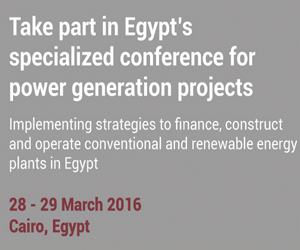Indonesia: Indonesia’s 2014 elections as a watershed moment in the country’s democratisation.
2014/01/05
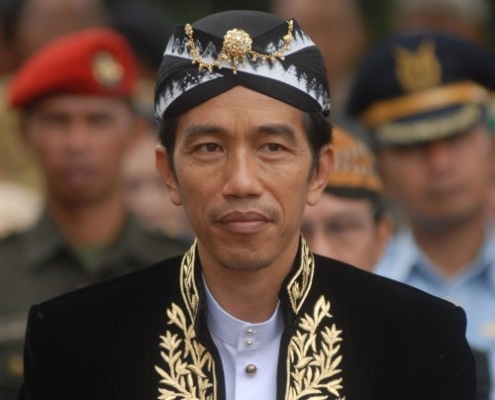
Years from now, analysts will look back on Indonesia’s 2014 elections as a watershed moment in the country’s democratisation.
Less than a year out from the presidential poll scheduled for July, the race appears likely to be a contest between elite party figures who came of age during the Suharto era and a man who is as much an anti-establishment outsider as a national politician can effectively be in Indonesia.
The latter is Joko Widodo, the recently elected Jakarta governor, who has made this election exciting and whose political ascendancy makes a decisive break with the past a possibility in 2014. ‘Jokowi’ (as he is universally known) has a rags-to-riches back story that is a political consultant’s dream. Born on a riverside slum in the Central Java city of Solo, he graduated with a forestry degree before starting a furniture manufacturing business that eventually made him a millionaire.
He was recruited by former president Megawati Sukarnoputri’s PDI-P party to run as mayor of Solo in 2005, and thanks to a program of improving public services and reducing corruption was reelected in 2010 with over 90 per cent of the votes.
Jokowi has shown more talent for using elected office to gain positive media coverage than any other politician in post-Suharto Indonesia. His personal style is key to this: folksy and self-effacing, he is the antithesis of the stereotypically officious and well-heeled Indonesian politician. By ordinary Indonesians, he is universally described as merakyat (down to earth); in particular, people remember gestures such as his declining to draw a salary while mayor, and transporting his spartan homemade furniture to his official residence in Jakarta after being elected governor there in 2012.
The remarkable speed of his rise has come mainly at the expense of the erstwhile presidential front runner, the Gerindra party boss Prabowo Subianto. As a former son-in-law of Suharto, Prabowo’s New Order credentials are unimpeachable. The redoubtable and polarising former special forces general stands accused of serious human rights abuses during the New Order. But he has sought to reinvent himself as a populist democrat, with financial backing from his energy tycoon brother (himself a Suharto family crony) allowing Prabowo to establish his own political party and to advertise heavily on national television to promote an image of himself as a tegas (firm, tough) leader to carry the nation to prosperity in the style of a Thaksin or Chavez.
Unfortunately for Prabowo, his attempt to burnish his reformist credentials by sponsoring Jokowi’s 2012 Jakarta campaign has backfired for him. The national media gave extensive coverage of the Jakarta race, and the tale of the plucky small-town mayor whose grassroots campaign defeated the capital’s formidable patronage machine was beamed into Indonesian homes from one end of the country to the other. Polls now show Jokowi shooting ahead of Prabowo. The latter’s only hope is that Jokowi does not get to run. At the time of writing, Jokowi’s supporters are nervously awaiting Megawati’s decision on whether or not to give her blessing to his candidacy. Polling shows that his popularity will carry the secular-nationalist PDI-P to huge gains in national and regional legislatures, but Megawati may be concerned about losing control of the party to him in the future.
In the end, Jokowi is now such an asset to the party that she might have little choice. A hint of a populist dynamic is beginning to be seen. Opponents within the Jakarta elite are reluctant to attack him publicly. As a former advisor to Jokowi put it: ‘he is atas angin [above the fray]. Anybody who attacks him will be seen as the bad guy’. Even rejection from his own party’s establishment, in the event of a conflict, will only enhance his standing as the ‘people’s candidate’, the anti-politician politician.
Unsurprisingly, Jokowi’s links to politico-business establishment figures are closer than his populist image would suggest. But his ascendency nevertheless represents a turning point in Indonesian politics. Most presidential candidates before him have been party, corporate or military elites (or combinations thereof) who came of age during the Suharto era. Never has an elected regional leader, such as a mayor or governor, been a serious contender for the presidency. The lesson of Joko Widodo is that a successful career in regional politics (and, critically, the free publicity that a smart politician can gain from one) is now an effective way to gain an appealing public profile on the national stage with the democratic legitimacy that a mere cashed-up party boss lacks. If Joko Widodo runs, he will win, and in doing so force some of Indonesia’s ancien regime elites into a long-overdue political retirement.
Liam Gammon is a PhD candidate at the ANU College of Asia & the Pacific.
- Related Articles
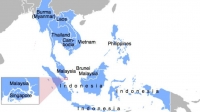
Towards A Transboundary Haze-Free ASEAN By 2020
2015/11/16 To sustain the efforts of a transboundary haze-free ASEAN, it is significant to remain vigilant and be prepared early enough to prevent any occurrence of fires. This calls for better early warning systems and swift deployment of fire-fighting resources even before the fires starts.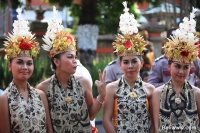
The financial and political crises of 1998 brought about significant changes in Indonesia’s corporate landscape.
2015/05/15 The financial and political crises of 1998 brought about significant changes in Indonesia’s corporate landscape. The proportion of Indonesian firms with political connections remains relatively high but is declining, as modes of political engagement are becoming increasingly varied. Indonesian walk pass the trade monitor at Indonesia Stock Exchange in Jakarta, Indonesia.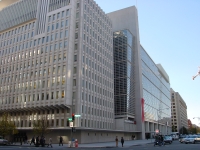
The World Bank fails to credit the intelligence of the world’s poor
2015/01/31 At the same time as a statement by the world’s most influential development agency provides evidence that a lot of of its staff are “biased” in their perceptions of the poor and their needs, one may expect eyebrows to be raised. At the same time as the president of that institution — the World Bank, no less — acknowledges the flaw and goes on to call for “measures to mitigate these biases, such as additional rigorously diagnosing the mindsets of the people we are trying to help”, jaws should be dropping.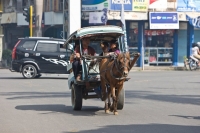
Indonesia Year in Review 2013
2014/03/05 The economy in Indonesia rounded out 2013 by posting relatively solid increase, despite a decline in world commodity prices and an increase in energy imports. The coming year’s performance is expected to be in high single digits, but risks include a tightening of external financing conditions and a softening of private consumption. Estimates have put Indonesia’s year-end increase rate at between 5.8% and just over 6%, a figure the government expects will be surpassed in 2014, with GDP estimate to expand by 6-6.4%. Exports are projected to rebound, while dependence on imported energy is set to decline as domestic oil and gas production expands, and biofuels usage climbs.
Indonesian Government put into force a full ban on raw mineral ore exports
2014/03/03 In January 2014, the Indonesian Government put into force a full ban on raw mineral ore exports as stipulated by the 2009 Mining Law. In an interview with United World, the Vice Minister of Energy & Mineral Resources Susilo Siswoutomo explains how the implementation of this act will presently induce players in the industry to add price to production,
- Indonesia News
-
- INDONESIA: Indonesia Eases Foreign Ownership in "Big-Bang" Liberalisation
- INDONESIA: Empowering Young Women Through Farming in East Nusa Tenggara
- INDONESIA: Govt, Private Sector in Pilot Project for Fire Prevention Procedures
- AZERBAIJAN: Azerbaijan to become export gateway for Indonesian products to European market
- INDONESIA: Indonesia Central Bank Cuts Interest Rate For Second Month
- INDONESIA: E-commerce expansion primed for Indonesian market
- Trending Articles
-
- AZERBAIJAN: Azerbaijan to become export gateway for Indonesian products to European market
- AFRICA: More than 41 million in southern Africa face food insecurity
- CHINA: Chinese Developers Delay Bond Maturity, Deficit to Peak in 2020
- SOUTH AFRICA: South Africa to extend ICT reach
- ITALY: The Child Migrants of Africa
- EUROPEAN UNION: Two Remarks on the Turkey-EU Deal on the Migrant Crisis







